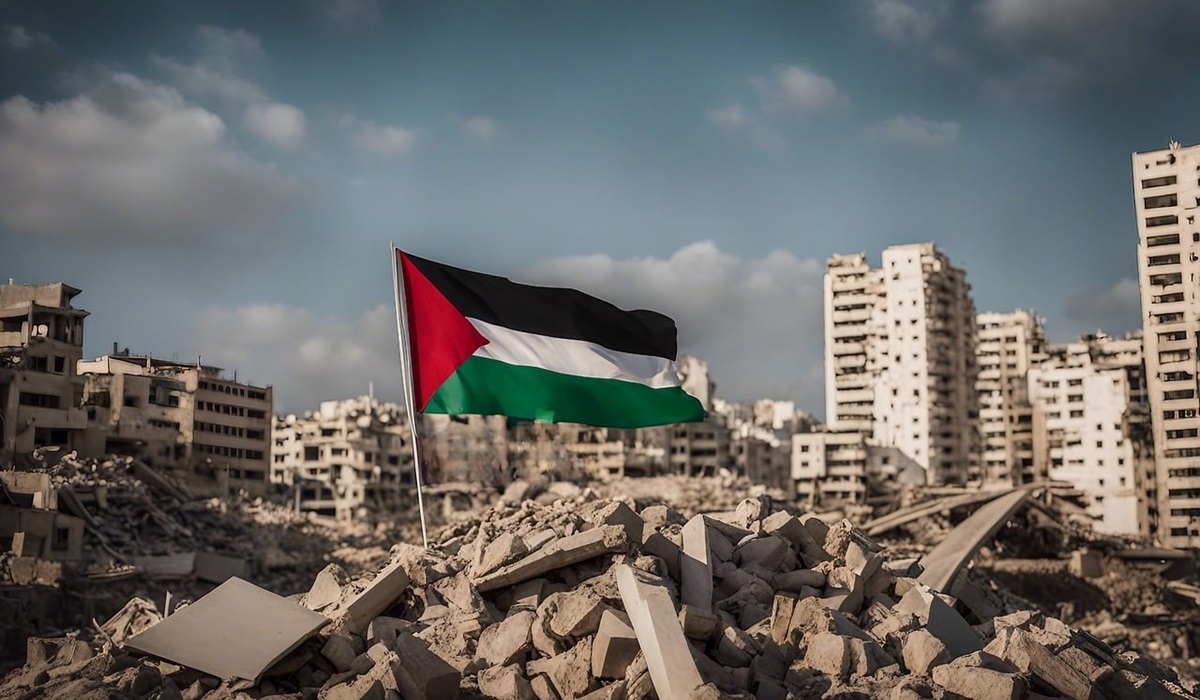Two States, One Question: Does Palestine Have a Right to Exist?
- TDS News
- Trending
- Middle East
- November 6, 2024

Image Credit, Abdulla Alyaqoob
The assertion that Israel has a right to exist, often echoed as justification in its ongoing conflicts, is inherently paradoxical. Israel already exists—recognized globally, holding a seat in the United Nations, and exerting significant influence on the world stage. If the point were simply about existence, this argument would be settled by the sheer fact of Israel’s established statehood and international validation. Yet, this right-to-exist narrative persists, deflecting a more urgent question: does Palestine have an equal right to exist, free from occupation, recognized as sovereign, and treated as an equal on the world stage?
The 1967 borders represent a unique benchmark in this discourse, symbolizing the last agreed-upon borders that established a tenuous boundary for Israel’s expansion. These borders remain emblematic because they represent the closest approximation of a two-state solution endorsed by the international community—a boundary in which both Israel and a nascent Palestinian state might cohabit. However, the subsequent decades have seen continued settlement expansion and a deepening occupation, eroding the feasibility of a Palestinian state even as Israel’s own right to existence has become increasingly secure.
This raises an uncomfortable yet vital question: Why can Israel, as a modern nation-state, exist without question, while Palestine’s claim to existence is contested, denied, and, in many quarters, dismissed? If the logic underpinning Israel’s right to exist is sound, why would it not extend to Palestinians, a people with a deep, historical claim to the very land they seek to govern autonomously? The opposition to Palestine’s statehood cannot be justified by a lack of historical ties, for the roots of both Palestinians and Israelis are intertwined within the geography, culture, and memory of the land.
The issue becomes clearer when one examines the role of global power structures. The United Nations, a body ostensibly devoted to peace and justice, has been hamstrung by political interests, particularly by the veto power held by nations with stakes in the region. The United States, for instance, has consistently vetoed resolutions that might have advanced Palestinian sovereignty. Here, the philosophical question intensifies: what is the value of an international organization dedicated to peace if it cannot endorse the self-determination of a people who are, by all metrics, deserving of a state?
Human history is punctuated by the devastation wrought by occupation, from South Africa’s apartheid regime to the lasting scars of colonialism upon Indigenous nations across North America. These dark legacies remind us that the suppression of a people’s sovereignty is neither a relic of history nor a sustainable model for the future. The oppression of Palestinians will not dissipate simply because it is convenient for the powerful to ignore. In the same way that global resistance dismantled apartheid, the struggle for Palestinian self-determination persists, underscoring a universal truth: no people should have to live indefinitely under occupation.
Ultimately, the question is not just about Israel’s right to exist but about Palestine’s right to exist, to thrive, and to build a future free from occupation. To deny this right is to legitimize a world where power, rather than justice, dictates who may enjoy self-governance. History teaches us that power without justice breeds resentment, destabilization, and an erosion of shared humanity. Therefore, if we value peace and human dignity, we must recognize that coexistence—true, equitable coexistence—cannot be achieved by occupying another nation but only by granting each the freedom and sovereignty that all people deserve.








